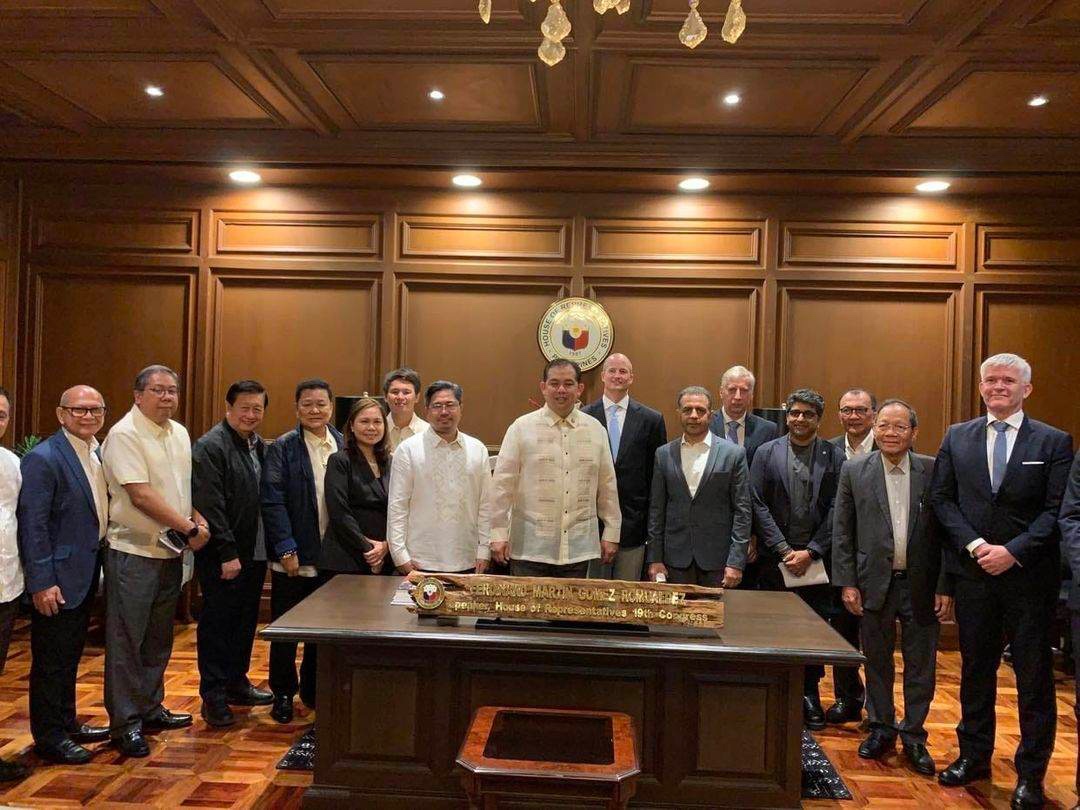Seafaring stakeholders join forces vs ambulance chasing

Members of the AMOSUP, shipowners, and manning agents in a courtesy call to House Speaker Ferdinand Martin Romualdez on Nov. 28, pushing for the end of ambulance chasing through the passage of Magna Carta of Filipino Seafarers. (Photo from AMOSUP.]
MANILA, Philippines — Maritime employers in the country and the Association of Marine Officers and Seamen’s Union of the Philippines (AMOSUP) on Wednesday said they recently united to push for the end of ambulance chasing in the country.
In a statement, the groups said their objective was to voice their support for the deliberation of the Magna Carta of Filipino Seafarers bill in the bicameral conference committee, pushing for the eradication of ambulance chasing.
Ambulance chasing is the act of encouraging seafarers to file complaints and seek monetary damages from their employers for work-related injuries, in which their lawyers get a big portion of their compensation.
“Ambulance chasing is an unethical practice that has detrimentally drained Filipino seafarers and Overseas Filipino Workers of their hard-earned resources,” the groups said.
READ: Escrow: Fly in the ointment in proposed Magna Carta for seafarers
Ship owners and key executives from local manning agencies representing the maritime employers and AMOSUP officials paid a courtesy call on Speaker Ferdinand Martin Romualdez last Nov. 28.
Article continues after this advertisementREAD: Bill targets ‘ambulance chasers’ victimizing seafarers
The groups further stressed that in recent policy discussions, claimant lawyers have become more prominent than seafarer unions and employers, challenging key provisions in the Magna Carta, “invariably favoring their practices and shaping public policy in the maritime sector.”
Article continues after this advertisementThe seafarers union and employers have, however, noted that certain labor associations, such as the National Association of Trade Unions, Association of Marine Officers and Ratings, and Federation of Free Workers expressed their opposition to the escrow provision.
“Addressing the menace of ambulance-chasing, which has occasionally strained relations within the local maritime sector, emphasizes the urgency of protective measures benefiting both Filipino seafarers and foreign workers,” the groups said.
“This critical issue underscores the pressing need for a comprehensive legal framework that safeguards the interests of seafarers and employers, ensuring a fair and ethical maritime industry for all stakeholders,” the groups added.